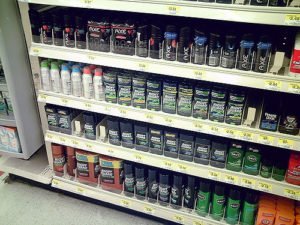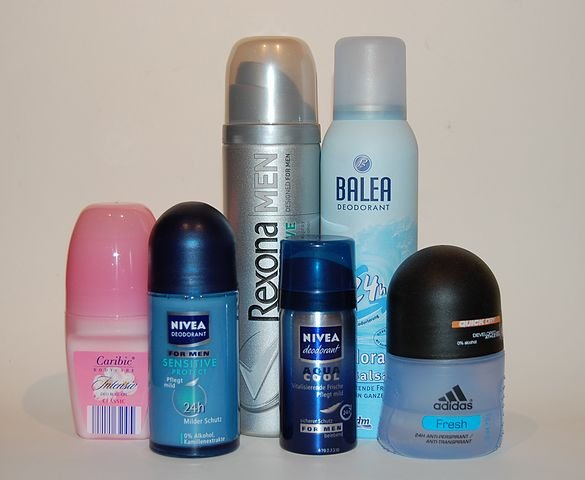A new study has revealed that some antiperspirants/deodorants still contain aluminum salts and that it could actually be linked to causing cancer.
While manufacturers claim that the product is entirely safe, researchers from the University of Geneva in Switzerland have found that extended exposure to aluminum chloride/salts can actually trigger the growth of tumors, especially in breast tissue.
This means that women who frequently use deodorants containing aluminum salts are possibly at a greater risk of developing breast cancer.
How does it cause cancer?
Aluminum chloride compounds help to reduce perspiration by temporarily blocking the sweat glands, which makes them accumulate in underarm and breast tissue.
This build-up can trigger the growth of tumors, which can later spread to other parts of the body. It can also produce an estrogen-like effect, where hormones can become imbalanced and trigger a host of associated health issues.
Professor Andre’-Pascal Sappino, an oncologist and the co-author of the study, observed isolated human mammary cells and then studied the same type of cells in mice. It was proven that extended exposure to aluminum chloride caused tumors which have the ability to spread or metastasize, a similar effect that asbestos has on living cells. The findings were published in the International Journal of Cancer.
“Asbestos is cheap, has very attractive industrial potential, and it took 50 years to ban it,” he said. “We hope it doesn’t take so long to ban aluminum salts.”
Which deodorants contain it?
While some deodorants do not contain aluminum chloride, most of them do, which makes it essential to check the label of any brand that you are buying.
Professor Sappino advises men and women again using any deodorants that contain these cancer-causing compounds, even though studies are still inconclusive.
Sappino says that due to the need for further research, he was expecting a backlash from the cosmetic industry, but that research would continue until the compounds are banned.
“Now the fight will begin. They will act like the tobacco industry and say that proof in human beings is lacking,” he told reporters. The good news is that the team’s findings would make it easier to secure funding for further studies, which could change the way that all deodorants and antiperspirants are produced.
What should you do?
Professor Sappino said that the aluminum salts were currently a “suspect that has not yet been convicted”, something which he compares to the battle of banning asbestos. Asbestos is now banned in Switzerland and throughout the EU, a process which took 50 years and resulted in multiple related deaths.
“Like asbestos, aluminum is not detectably mutagenic in bacteria, but was found to result in very aggressive tumors when injected into mice.”
Dr. Sally Norton, a National Health Service (NHS) consultant, said: “Studies so far have been inconclusive, and if the risk was very high, we would know about it by now so we shouldn’t be too alarmed. However, the increasing use of chemical products on ourselves, around the home, and in our wider environment is almost certainly causing some harmful effects and we should try to reduce them wherever possible.”
Sources:
https://www.cancer.gov/about-cancer/causes-prevention/risk/myths/antiperspirants-fact-sheet
https://www.thelocal.ch/20160926/deodorants-could-cause-cancer-swiss-study-warns
https://www.nhs.uk/pages/home.aspx
https://www.sciencedirect.com/science/article/pii/S0162013405001613






